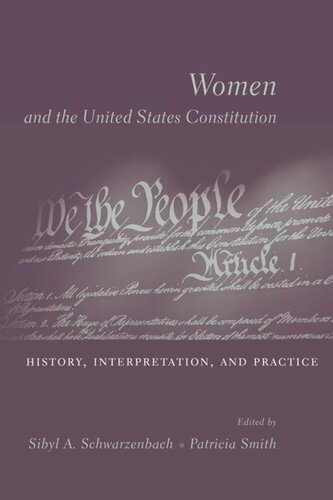

Most ebook files are in PDF format, so you can easily read them using various software such as Foxit Reader or directly on the Google Chrome browser.
Some ebook files are released by publishers in other formats such as .awz, .mobi, .epub, .fb2, etc. You may need to install specific software to read these formats on mobile/PC, such as Calibre.
Please read the tutorial at this link: https://ebookbell.com/faq
We offer FREE conversion to the popular formats you request; however, this may take some time. Therefore, right after payment, please email us, and we will try to provide the service as quickly as possible.
For some exceptional file formats or broken links (if any), please refrain from opening any disputes. Instead, email us first, and we will try to assist within a maximum of 6 hours.
EbookBell Team

4.0
16 reviewsDivided into three parts—History, Interpretation, and Practice—this provocative volume incorporates law, history, political theory, and philosophy to analyze the U.S. Constitution as a whole in relation to the rights and fate of women.
Women and the U.S. Constitution is about much more than the nineteenth amendment. This provocative volume incorporates law, history, political theory, and philosophy to analyze the U.S. Constitution as a whole in relation to the rights and fate of women. Divided into three parts—History, Interpretation, and Practice—this book views the Constitution as a living document, struggling to free itself from the weight of a two-hundred-year-old past and capable of evolving to include women and their concerns.
Feminism lacks both a constitutional theory as well as a clearly defined theory of political legitimacy within the framework of democracy. The scholars included here take significant and crucial steps toward these theories. In addition to constitutional issues such as federalism, gender discrimination, basic rights, privacy, and abortion, Women and the U.S. Constitution explores other issues of central concern to contemporary women—areas that, strictly speaking, are not yet considered a part of constitutional law. Women's traditional labor and its unique character, and women and the welfare state, are two examples of topics treated here from the perspective of their potentially transformative role in the future development of constitutional law.